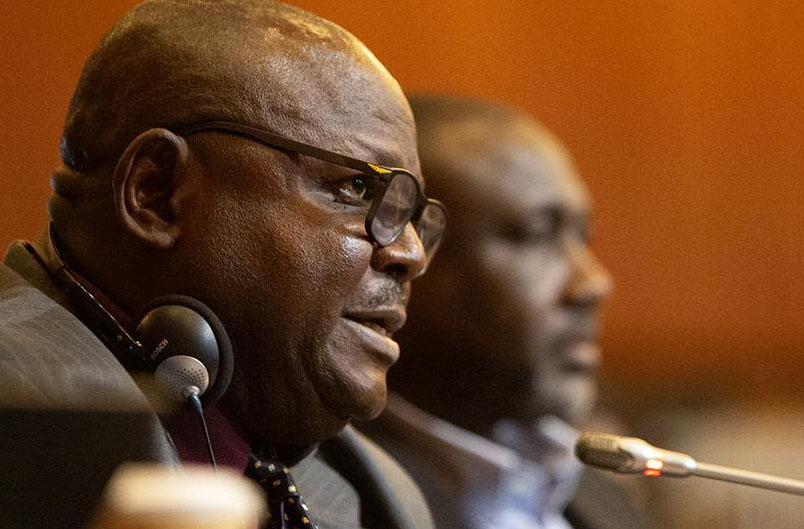
• Nigerian group wins $100,000 in Assembly competition
Representatives of 185 countries including Nigeria ratified at the Global Environment Facility’s (GEF) Seventh Assembly in Canada, an innovative new fund for biodiversity that will attract funding from governments, philanthropy and the private sector.
The new Global Biodiversity Framework Fund (GBFF) has been designed to mobilise and accelerate investment in the conservation and sustainability of wild species and ecosystems, whose health is under threat from wildfires, flooding, extreme weather, and human activity including urban sprawl.
Already, two countries have announced initial contributions to start its capitalisation. This included 200 million Canadian dollars from Canada and 10 million pounds from the United Kingdom. The contributions will support action towards halting and reversing biodiversity loss by 2030 and putting nature on a recovery path by 2050.
The GEF Assembly brought together 1,500 people from around the world, including environmental leaders and managers from government, business, academia, and civil society, including Indigenous Peoples, women, and young people. Nigeria was represented by the Director, Planning, Research and Statistics/GEF Operation Focal Point, Mallam Jonah Stanley.
The GBFF’s ratification came eight months after the Conference of the Parties to the Convention on Biological Diversity agreed on a historic set of global biodiversity goals known as the Kunming-Montreal Global Biodiversity Framework, and decided to set up a new GEF-managed fund to support its implementation.
The GEF is a family of funds supporting developing countries’ action on inter-related environmental challenges including biodiversity loss, climate change, and pollution. In June, the GEF Council approved the arrangements to establish the fund during a meeting in Brazil.
“This is a hugely positive moment that will be remembered far into the future. We have shown at the Seventh GEF Assembly that even in difficult conditions – with wildfire smoke as our backdrop – we can move forward to build a more biodiverse planet for everyone’s benefit,” said Carlos Manuel Rodríguez, CEO and Chairperson of the Global Environment Facility.
“This shows the determination of the world community to implement the Kunming-Montreal Global Biodiversity Framework, and shows that the world is moving from agreement to action,” said David Cooper, Acting Executive Secretary of the Convention on Biological Diversity.
In a related development, a Nigerian group – U-recycle Initiative Africa was among
23 civil society organisations selected as winners of its Inclusive GEF Assembly Challenge Programme, a novel initiative reflecting a commitment to support and elevate community-driven climate and nature projects, as well as the unique contributions of Indigenous Peoples, women, girls, and young people across the GEF partnership.
Each awardee will receive a grant of up to $100,000 and gain access to networking, training, and knowledge exchange opportunities through the GEF, a family of funds that finances international efforts to address biodiversity loss, pollution, and climate change.
The winning organisations will be celebrated during the Assembly’s Partnership Forum and will share their experiences in a number of panels and sessions, reflecting the GEF’s focus on supporting environmental action and results through a “whole of society” approach.
The Nigerian group advances environmental education, a circular economy, youth development, and climate action. Its PlasticWize Fellowship initiative is designed to build the largest campus movement geared towards tackling plastic pollution in Nigeria and other parts of Africa.
This initiative is designed to empower university students across Nigeria with the knowledge, tools, and resources to take a stand against marine plastic pollution through proactive, comprehensive, and creative interventions.
“Global environmental challenges affect us all, but their impacts are almost entirely locally felt. It is our privilege to celebrate and fund these locally-designed, locally-led remedies for climate resilience, coastline protection, biodiversity conservation, and more,” Rodriguez said, celebrating the winners.
“The Inclusive GEF Assembly Challenge Programme is a concrete example of our focus on supporting civil society and lifting up the voices and innovations of Indigenous Peoples, women, youth, and others who have been historically under-represented in international environmental financing and policy,” Rodriguez added.
The 23 winners were chosen from nearly 600 applications, by a selection panel made up of the GEF’s CSO Network, Scientific and Technical Advisory Panel, Indigenous Peoples’ Advisory Group, and Gender Partnership, as well as youth representatives linked to international environmental conventions.
They span 26 countries including Antigua and Barbuda, Belize, Bolivia, Cameroon, China, Colombia, Costa Rica, Democratic Republic of Congo, Ecuador, Haiti, India, Kenya, Kiribati, Madagascar, Mexico, Nigeria, Peru, Sierra Leone, Somalia, South Africa, South Sudan, St. Vincent and the Grenadines, Tanzania, Thailand, Tunisia, and Uganda.






